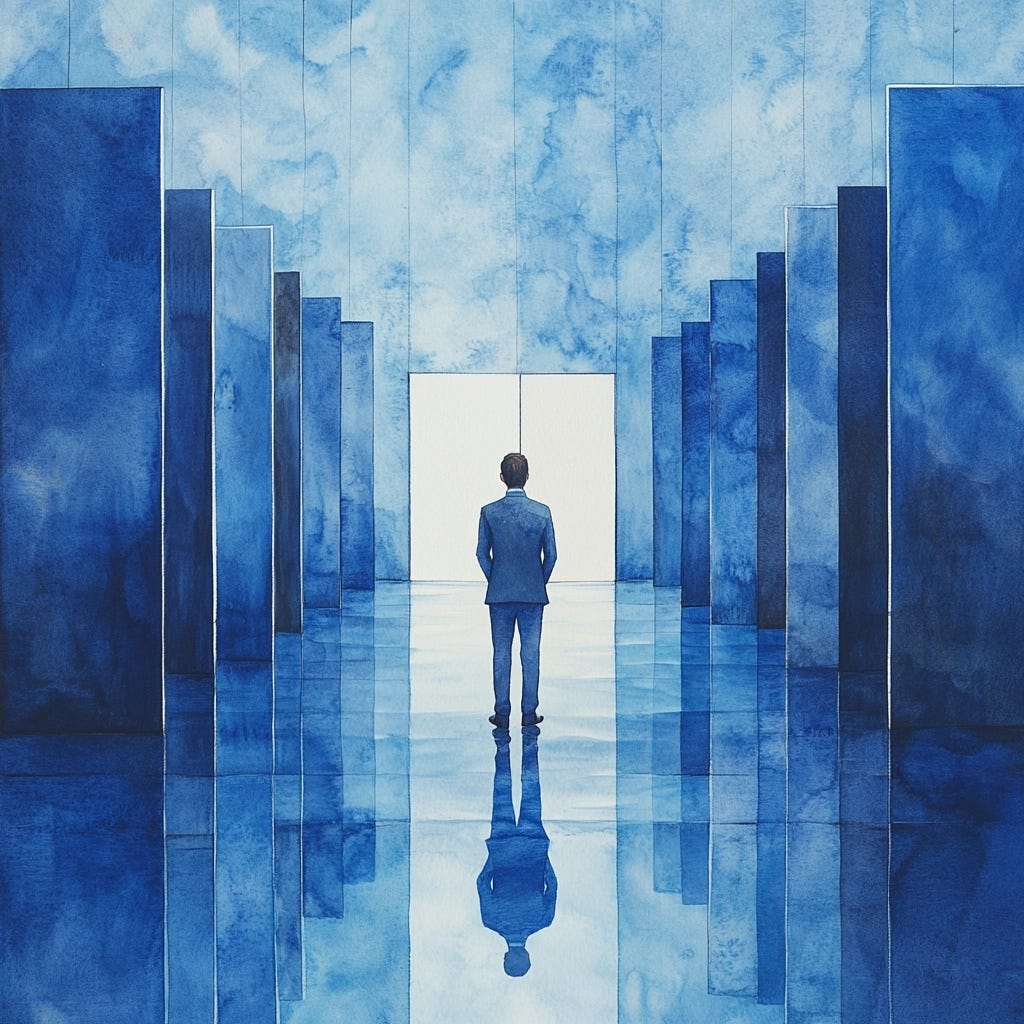Jobs of the Future
(Dis)Illusion of a Revolution, Reality of a Transformation
The future of work… We imagine it ruled by machines, smart programs, and algorithms steadily taking control. Yet beneath the surface, one crucial question remains: what is — and what will be — the role of humans?
When Machines Take Control
AI is no longer just automating tasks—it’s learning, adapting, and reshaping entire professions. New roles are emerging: AI trainers, prompt engineers, and ethical analysts. We now shift seamlessly from one skill to the next, fueled by data—the new gold. With cyber intrusions up 613% since 2013, cybersecurity has become a top priority, creating demand for cybersecurity engineers, risk analysts, and auditors.
At the same time, altered realities—virtual, augmented, and deepfakes—are giving rise to a world of illusions where the lines between the real and virtual blur. Digital clones and 3D avatars are redefining how we interact. And with them come new careers: immersive experience architects, 3D modelers, and digital avatar managers.
Yet, even in these highly technical fields, it's no longer about total mastery. The challenge now is to create and guide extensions of ourselves. This is where Out Skills come into play: abilities where humans steer intelligent assistants, powered by rare data, granting them precise expertise—amplified reflections of ourselves.
Unlike hard skills, which focus on technical abilities, or soft skills, rooted in emotional intelligence, Out Skills embody a deeper level of self-expansion. Humans expand, deploying their knowledge through a digital team crafted in their image. They no longer just offer their personal skills, but also those of their intelligent assistants, who extend their presence and actions.
In this "K-shaped" economy, those who adapt will soar, while others may fall behind. AI opens new doors, but it closes others too.
Hyper-Specialists or Polymaths?
This transformation brings up a crucial question: should we specialize or remain versatile? Technology naturally pushes us toward specialization. Language models that were once broad and general are now fragmenting into smaller, ultra-specialized systems, fueled by proprietary data guarded like treasure. Companies are locking down their assets, forcing technology into increasingly narrow, vertical pathways.
But must humans follow this same path? The answer is more complex. In Silicon Valley, philosophers and poets are being hired—not for technical tasks, but to address ethical challenges and enhance the quality of AI-driven content. These thinkers offer a humanistic perspective that machines alone cannot generate. While a machine can analyze data, it can’t interpret or consider long-term consequences. Poets and philosophers anchor technology in a broader human context.
Leonardo da Vinci understood this long ago: true intelligence doesn’t stay confined. Those who cross disciplines and navigate between fields build bridges where others draw boundaries. Specialists may dominate the moment, but polymaths shape the future. By uniting science with art, technology with philosophy, humans unlock their greatest potential.
Where the Heart Beats
This spirit is also found in the professions that fight to preserve the soul of craftsmanship. Where the hands shape, emotions are infused. The chef, the carpenter, the potter—they don’t just create objects; they extend a dialogue between material and intention.
These "passion skills," often unconventional, stand in stark contrast to the rational logic of machines. Technology can imitate almost anything, but it cannot replicate the deep essence that flows into every dish, every piece of furniture, every sculpture. These are not just skills; they are a presence, a human imprint left on a world increasingly shaped by technology.

Even the jobs once thought doomed to automation find their salvation in this soulful addition. While Amazon is closing a large number of its cashier-less stores—signaling that automation doesn't always win over the public—initiatives like the "slow checkout" lanes at Jumbo in the Netherlands and ICA Kvantum in Sweden choose to slow things down. These spaces allow customers, often the elderly, to chat with cashiers, restoring a sense of human interaction in a world that has become too fast and too digital. Here, the focus isn’t on performance, but on connection.
The Whisper of the Self
This pursuit of connection speaks to a deeper yearning. We've lost our balance. The rapid pace of the world, which began with the Industrial Revolution, has only widened our sense of disconnection. Leisure has been drained of its meaning, pulling us away from self-awareness as we get lost in fleeting distractions. Yet, generative AI offers a glimmer of hope. By mining unstructured data, it uncovers hidden layers of human insight. Perhaps we are on the verge of entering an era where inner peace becomes possible.
Neuroscience and psychology-based fields are flourishing, as are brands that help people uncover the parts of themselves they've long ignored. Psychodermatology, neurogastronomy, neurodesign—these practices go beyond technique, carving out a path toward the soul.
LEGO explores this through dream crafting, while Duolingo reimagines its workspaces using the principles of neuroscience and neuroaesthetics. Offices are being transformed into environments where every corner is tailored to the unique rhythm of each individual, balancing zones of calm with spaces for connection. BBVA, on the other hand, has introduced the program Atrapando tu sueño (“Catching Your Dream”), where sleep cycles are decoded into maps, giving employees insights into understanding their own rest.
In truth, the rise of new tech-driven jobs is undeniable, but nothing will ever replace those that carry a soulful addition. Perhaps the future lies precisely in this invisible bond that ties us to our deepest humanity.
Machines may compute, but humans imagine. And that is why the future belongs to us. As Xavier Niel said: "If the game isn’t working in your favor, change the rules." Where everything seems closed, humans always find a way in.
In the end, it’s not about augmenting humans—it’s about elevating them. This isn't just a quest to amplify our capabilities through technology; it’s about lifting the human spirit, deepening our connection to ourselves and the world. The real power lies not in enhancing what we do, but in expanding who we are.
MD




love the concept of a "soulful addition." beautifully worded